Cary Grant Miniseries ‘Archie’ Explores the Many Faces and Private Life of the Hollywood Legend
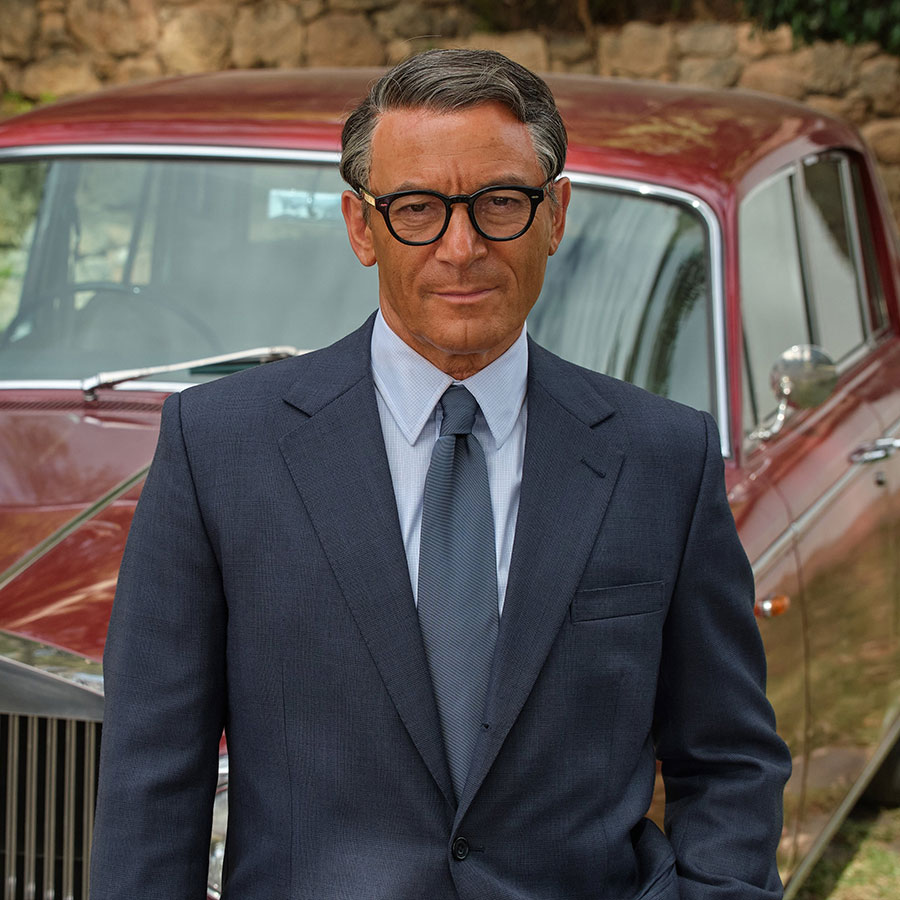
Actor Jason Isaacs donned facial prosthetics to help embody Cary Grant in 'Archie.' Photo: Courtesy of BritBox
“Everyone wants to be Cary Grant. Even I want to be Cary Grant.”
It’s an oft-quoted line, delivered by the Hollywood legend himself. And it gains even more meaning in hindsight, when considering the life story of the actor whose status as a style icon of acrobatic grace, elegant screwball comedy and urbane charm endures nearly 40 years after his death.
Archie, acclaimed filmmaker Jeff Pope’s new four-part miniseries about Cary Grant (streaming now on BritBox), explores the tumultuous lesser-known life story behind the legend.
That Cary Grant was born Archibald Leach has been a Trivial Pursuit question for decades. Yet despite recent deeply-researched biographies of Grant/Leach by film historians like Mark Glancy and Scott Eyman (who spoke about his subject with Zoomer‘s Zed Book Club at length), or the 2017 documentary Becoming Cary Grant, the traumatic life story that Archie dramatizes will be news to all but the most ardent Cary Grant fans. Even the Turner Classic Movies devotees tuning in to watch his films (he’s December’s Star of the Month) will be surprised by the details.
As historian David Thomson has reminded us, Alfred Hitchcock once singled out Cary Grant as the exception to the rule of authentic onscreen likability as, “so formidably skilled that he could fake a charm he did not in fact possess.”
Archie reveals the off-screen Cary Grant as a regimented and controlling person, with abandonment issues as a result of an emotionally-starved childhood. The duality of the real person and carefully cultivated public persona could not be more stark. Actor Jason Isaacs, 60, who dons facial prosthetics to embody the adult Grant, accurately (and empathetically) nails it in an excellent interview with Good Morning Britain when he describes the actor as a “very damaged, very damaging, very hurt man who was charmless, in many ways — full of rage.”
Neglected, abused and abandoned as a child, he was a survivor. And the debonair persona forged through sheer willpower and determination that kept his painful childhood separate proved a Faustian bargain (many failed love affairs; four acrimonious divorces).
The series puts the actor’s suave icon persona into context, cross-cutting timelines at the height of his fame and success with key moments in his impoverished and traumatic childhood in Bristol, England — as well as the hardscrabble early jobbing years in New York — to demonstrate the impact the painful childhood had on Grant’s life as an adult.
It begins with Grant in pursuit of starlet Dyan Cannon in the wake of North by Northwest success; they wed in 1965 when he was 61 and she was 28. The May-December romance was not a happy one and they divorced soon after daughter Jennifer’s 1966 birth. In many scenes he is cold, manipulative and even emotionally abusive, while also being obsessed with introspection through the healing psychiatric benefits of LSD (an interest introduced to him by third wife Betsy Drake).

Opening the Book on Cary Grant
Archie is largely based on Dear Cary, the 2011 memoir of ex-wife Dyan Cannon, 86 (an executive producer on the series), augmented with original interviews and research. Grant’s only child, daughter Jennifer Grant, now 57, was just 20 when he died in 1986 at age 82, and is also an executive producer. She wrote her own memoir in 2011, called Good Stuff, and it’s a fond reminiscence of a growing up in close relationship with a doting father who retired from acting in large part to spend time raising her.
“Geographically and emotionally, dad moved a great distance from his parents and his roots,” Jennifer observes in her book. “His [new] name accurately reflected the distance traveled.” She also writes of never reading or engaging with biographies and gossip about Grant and resisting “the objectification of his life.”
That phrase stayed with me, so when Jennifer and I had a quick chat this week ahead of Archie’s North American release, I wanted to know what had changed her view, and why now? What exactly was it about Pope’s proposal that made this project different?
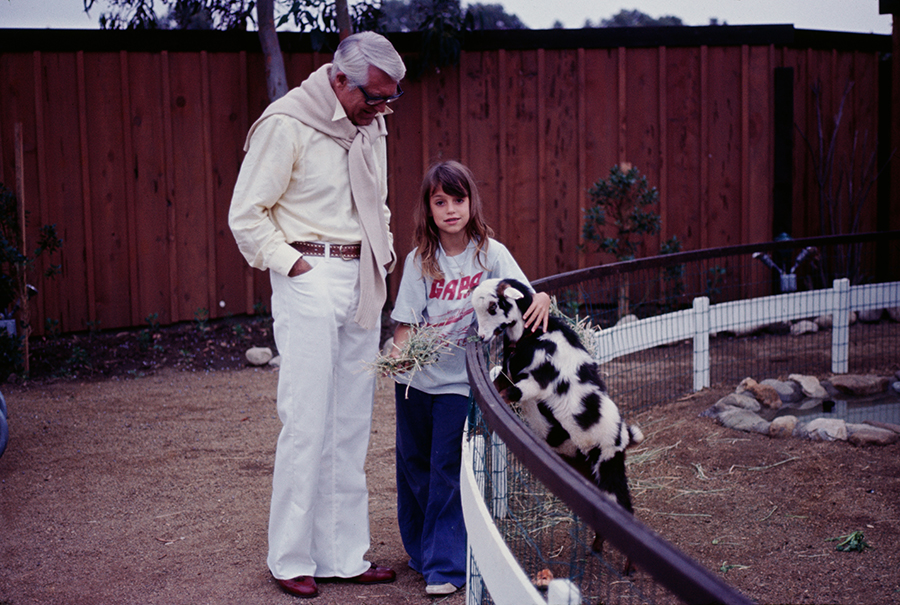
Pope, a BAFTA-winning, Oscar-nominated filmmaker, approached the family more than a decade ago about such a project and the fact that he wasn’t rushed was in his favour, she recalls. “I think the fact that he was British — that he is British — and that he was open-minded, curious, and really wanted to get it right, separated him from the many people who had approached in the past.” That, and his body of work — she admired his writing on Philomena, the biographical drama about an Irish woman (Judi Dench) who spends 50 years searching for her lost son.
The experience of working on the project was also “entirely different” than she expected.
“I don’t think I could have imagined it. It was quite a deep process for me,” Jennifer admits. With the help of his son George, Pope did extensive research and Jennifer learned a lot more about her grandmother Elsie Leach’s history; she had known she’d been institutionalized, for instance, but not that it was her grandfather who had put her there.
“And that was actually part of what really attracted me to doing this,” she adds. “Telling her story. Because when Jeff first approached I thought, ‘No, it’s not gonna happen. Not gonna do it. Dad was too private!’” But she also thought it was important that Elsie’s story be shared. “You know, this wasn’t so long ago — that a man could simply sign a woman’s life away and institutionalize her.”
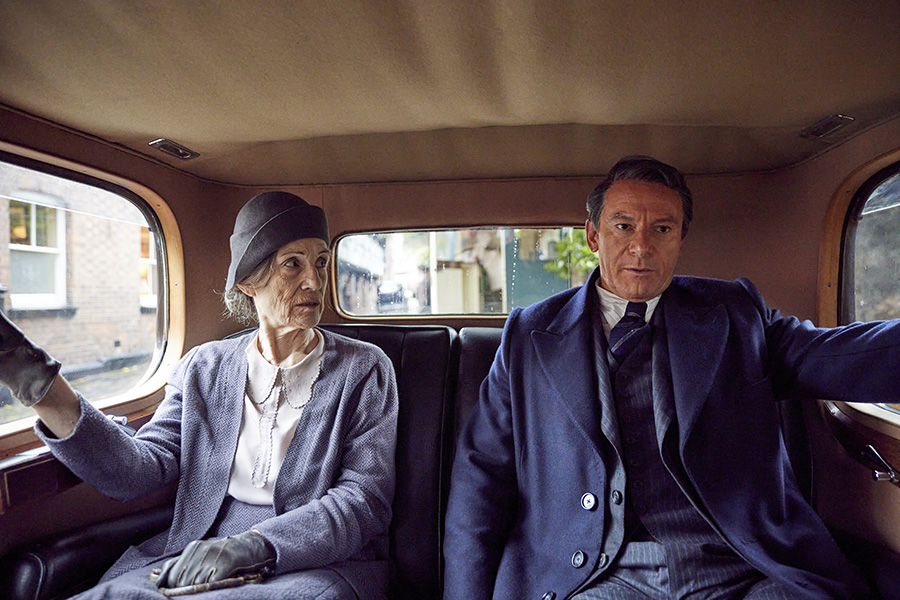
Grant was famously private, giving few interviews besides a brief sartorial how-to and an autobiographical sketch he wrote in 1963 for Ladies’ Home Journal; even in retirement, he eschewed the path of other bygone Hollywood stars and never once appeared on the chat shows of the 60s and 70s. Legendary American talk show host Dick Cavett laments Cary Grant as the one that got away.
Yet in the last few years of his life, I suggest, there seemed to be a change in his relationship to privacy, to fans and to sharing of himself. After all, he toured “An Evening with Cary Grant” around the U.S. and fielded audience questions about his life and career. Jennifer demurs.
“Not so much — but I think his relationship with himself changed. He’d avoided having a family for so long because of his own childhood. One might think becoming Cary Grant is enough of a challenge, but I think for him, becoming a parent was crucial. And I think he’d been searching for himself all his life. And I think in taking that step into becoming a parent, he really truly became himself.”
I’m curious not only about the experience of witnessing her parents’ relationship interpreted and re-created on screen, but of seeing the inside of the beloved childhood home at 9966 Beverly Grove she shared with Grant recreated after all these years, especially now that the house has been demolished.
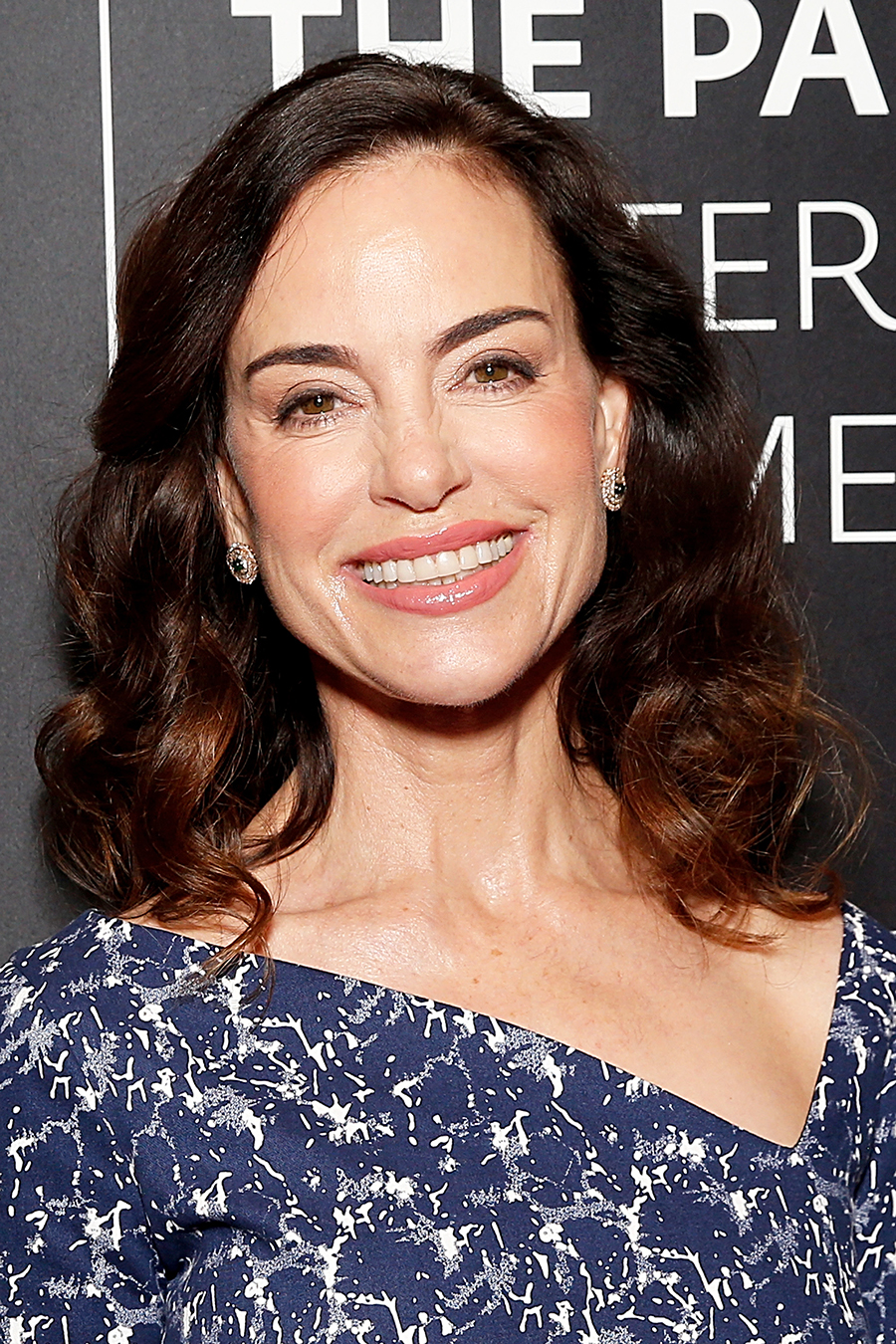
“Repurposed!” Jennifer counters with a laugh. “Just because, the word demolished…” she puts her hand over her heart.
There were many years spent on the script and the process, she reminds me. “And by the time you get to shooting and it coming to life, my control was just gone,” she explains. “So it was a very vulnerable process for me to see Jason reenact dad and Laura [Aikman] reenact mom, to see our lives — or some amalgamated version of our lives — brought to life.”
She admits it was “wild” seeing Isaacs portray her father. “I’m very thankful that Jason had the guts to play dad, and the talent and did immense research for the part. And Laura was just so very naturally like my mom — maybe like a slightly British version of mom. It was amazing.”
Will the Real Cary Grant Please Stand Up?
Leading up to the premiere, Pope has been candid about striking the tricky balance of working with mother and daughter, who weren’t always on the same page. Having read both their memoirs, I can attest that they draw portraits of two very different men, neither of whom is “Cary Grant.” One is a loving portrait of a caring man, the other is a charming and charismatic but often hurtful person.
Archie strikes a balance between honouring an important cinematic legacy while also meeting the current moment. It’s of a piece with the recent spate of soul-baring biographical dramas like Judy (Garland), Maestro (Leonard Bernstein) and The Last Movie Stars docu-series, about similarly private icons Paul Newman and Joanne Woodward (a project initiated by the couple’s children), demystifying celebrities and exploring them as real, relatable, flawed and complex individuals.
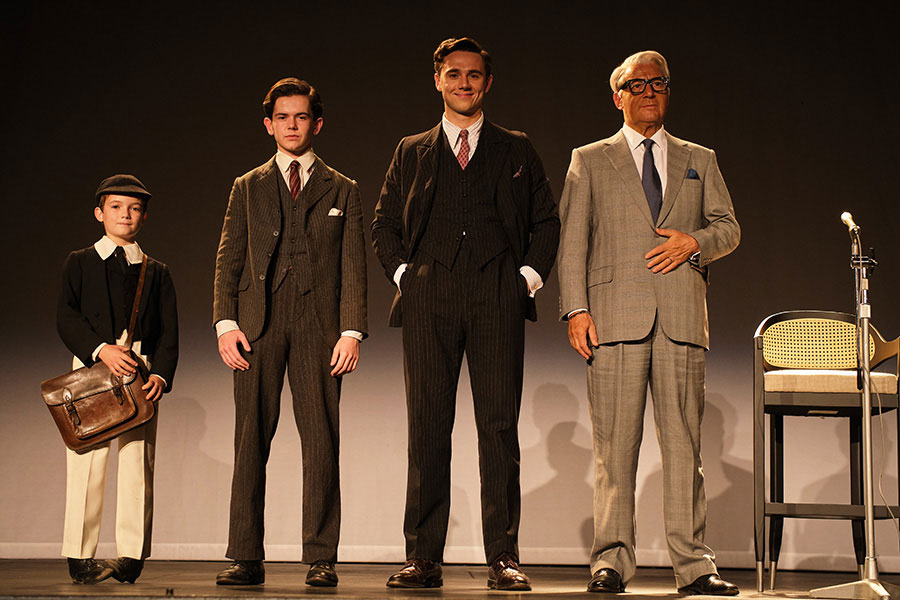
In addition to probing the reasons for origins of his difficult temperament, Archie doesn’t shy away from addressing the persistent speculation about the nature of Grant’s sexuality — specifically the longtime rumours he was gay or bisexual, based on early close relationships with costume designer Orry-Kelly and longtime roommate Randolph Scott.
As she wrote in the Guardian this summer, Jennifer doesn’t believe he was, though allows that, “[p]erhaps earlier in his life he had an affair [with a man]. I’ll never know, but if he did, fantastic. I hope he enjoyed it.”
The series leaves the closet door ambiguously ajar: “I have loved a lot of people,” Grant (Isaacs) replies when asked. “Even married some of them.”
The first two episodes of Archie are streaming now on BritBox. Episodes 3 and 4 premiere on Dec. 14. Jennifer Grant will be co-hosting a day of Cary Grant films on TCM Dec. 22.
RELATED:
What If Cary Grant’s Most Famous Character Was Cary Grant, the Famous Actor?